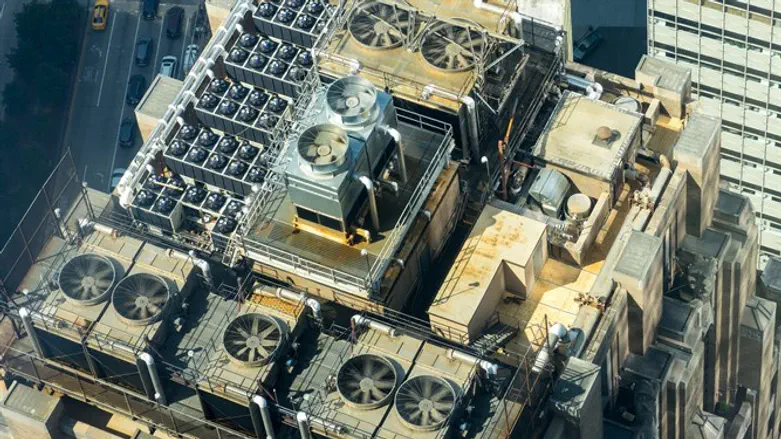
Over the past few weeks, Israelis have been living through the beginning of this summer season's heatwaves. With the mercury climbing, there have already been growing reports of heat-related medical emergencies, and there are doubtless more on the horizon. It's a difficult situation that seems to have no end in sight.
In fact, there's every reason to believe that the summer heat in Israel is going to keep getting worse every year. The latest data indicates that Israel will see upwards of a 1.2-degree increase in average temperatures by 2050, which would be a disaster for the safety of the region. At the very least, it will call for some serious adaptation to the way people live.
As it is, it's all but impossible to make it through the summer without the heavy usage of air conditioning, and that's not likely to change. But with air conditioning itself and the generation of the electricity it relies on to operate playing a major role in the increasing temperatures, it's clear that something's got to give. And since there's no way to change the weather, it is how we keep our indoor spaces habitable in the summer that's going to have to evolve.
The good news is that there seem to be some recent innovations coming along that may help Israelis to do just that. They include upgrades to building energy efficiency and building materials, as well as some new twists on air conditioning technology that, when combined, could represent a viable future strategy for surviving the rising temperatures.
On the building front, there are already some early examples that could point the way. Structures like the Check Point Software office in Tel Aviv offer an excellent case study. In 2018, the building was retrofitted to include vertical gardens that cover the east and south faces of the building. The vegetation acts as a cooling system that controls how much heat and light pass through the building's windows, thus reducing the cooling burden on the traditional HVAC system.
But in recognition that eliminating all HVAC usage isn't going to be possible in the near term, there are also efforts underway in the continuing development of building integrated photovoltaic (BIPV) technology. It's a solar power generation approach that would allow the installation of solar cells in the glass of large buildings without blocking light transmission into the structure. With such a system in place, HVAC systems could operate without relying on hydrocarbon-based electricity generation. While not a perfect solution, that would at least minimize the continuing negative impact on the climate that wide-scale HVAC use creates.
There are even some changes coming to the HVAC systems themselves, which could further increase their efficiency and make them a viable option for continued use in the future. Right now, scientists in Eilat are working on a new HVAC system that would utilize seawater as a coolant rather than compressed gasses, which are now the norm.
It's an approach with deep roots in the history of HVAC systems, as the earliest mechanical air conditioners relied on cold water to the air they handled. In this case, the latest iteration of seawater-cooled HVAC would rely on a central cooling station that could deliver seawater from a deep-water intake to the HVAC system of multiple buildings at once, and return heated water to the sea.
It is estimated that this approach could lead to HVAC systems that are 30% more energy efficient than current models, which would be worthwhile and significant savings. When combined with the other approaches detailed here, it would then be possible to build or retrofit structures to achieve net-zero energy consumption without sacrificing the comfort of the occupants or contribute to the worsening climate.
The takeaway here is that although the rising temperatures today do represent a clear and present danger to Israel – and the world at large – it looks as though human ingenuity is closing in on finding some workable solutions to continue to keep us cool. In a world that's about to pay a steep price for the unchecked pollution and environmental damage wrought over the last century, it's a welcome bit of good news that couldn't have come at a better time.
